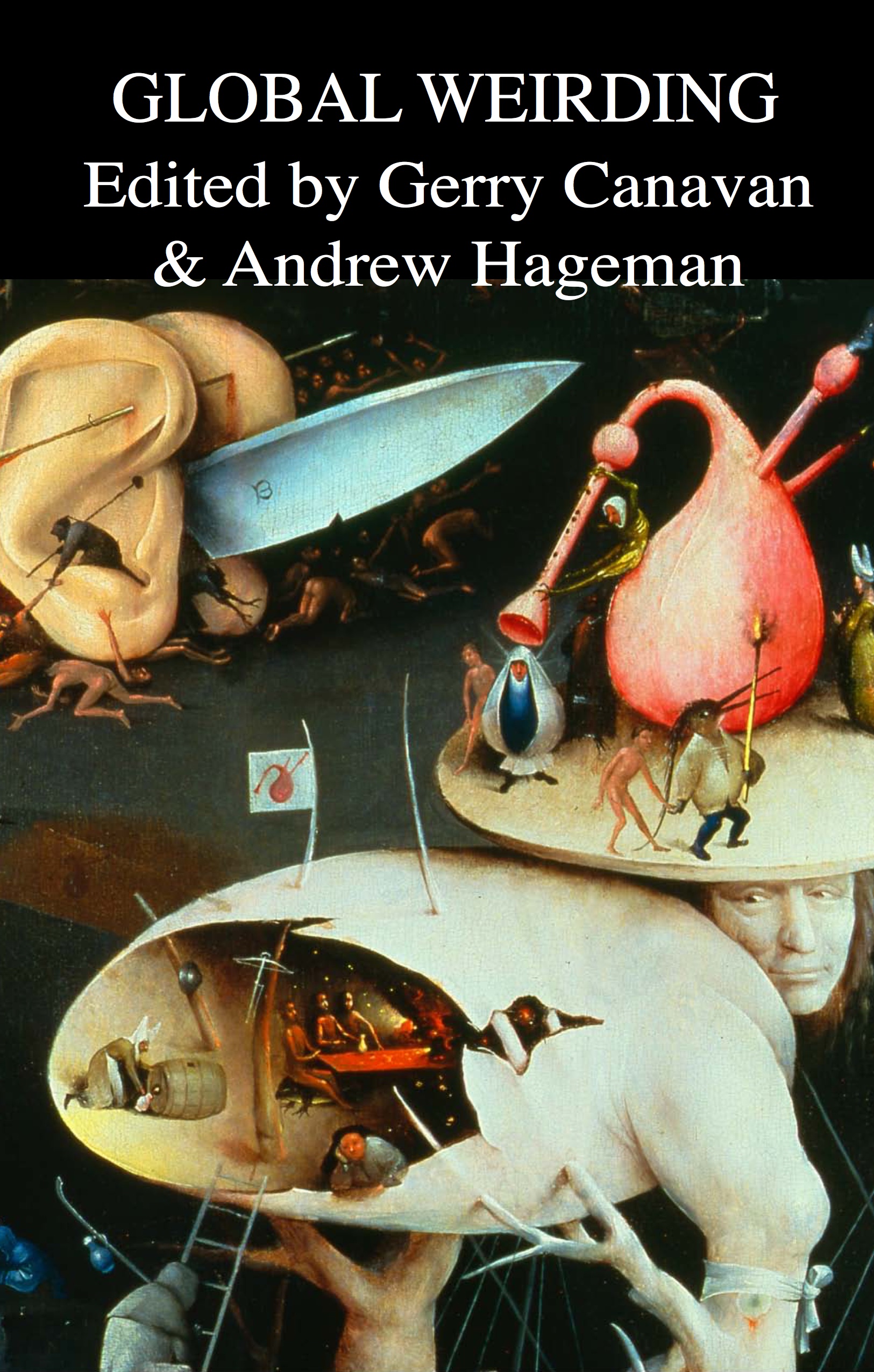Archive for October 2007
There Was Only One Catch
“That’s some catch, that catch-22,” he observed.
“It’s the best there is,” Doc Daneeka agreed.
If it weren’t for Keith Olbermann’s excellent Milo Minderbinder reference, this Countdown segment on the granting of Catch-22-esque immunity to Blackwater would be one of the most depressing things I’ve ever seen. It makes me feel, well, like this dog.

‘An entire nation imagining itself into being’
Orhan Pamuk on the social and political power of the novel. Via Bookninja.
Near the end of his talk, the novelist spoke of “a vision that I entertain from time to time.” Sometimes, he said, he tries to “conjure up one by one a multitude of readers hidden away in corners, nestled in their armchairs with their novels.”
Then, before his eyes, “thousands, tens of thousands of readers will take shape, stretching far and wide, across the streets of the city, and as they read, they dream the author’s dream, imagine his heroes into being and see his world. So now these readers, like the author himself, try to imagine ‘the other’ — they are putting themselves in another’s place.”
By the end of this vision, Pamuk said, he sees his novel readers as “an entire nation . . . imagining itself into being.”
Ain’t That America
America isn’t about taking seven pitch-perfect hours of British comedy, dumbing it down, and stretching it out over forty hours and counting. No. America is about doing all that and then spinning off a half-baked sequel.
Bruuuuuuce and Three More
I don’t care what you say about me, Clear Channel—I can take it—but leave Bruce Springsteen alone.
What would Earth be like if there were no moon?
Americans are now officially too fat for the rides at Disneyland. How big do we all have to get before we figure out we’re eating garbage?
Beyond the age of petroleum: enjoy the wars.
Questions about F’ing Utopia
My friend R. Vu bids adieu to Utopia. (Warning: he drops bombs. F-bombs.) I’ll probably write more about this later, but this:
So give up utopia, give up hope. Give up the gods, finally. What then? I submit the following declaration, appropriately vulgar:
We Are Fucked.Fucked: there will not be flying cars and foie gras for everyone. Fucked: the revolution will always take place somewhere else. Fucked: even self-righteous victimhood is incoherent, because there is always someone more fucked than you, and your pet huddled masses. Fucked: death is unavoidable, and you are not going to heaven for ’saving’ future generations. They too are fucked. The ‘we,’ used without reservation, without respect to age, gender, nationality, or sexual orientation, unites us all.
reminds me of studies that show that merely mentioning death tends to make people more conservative, as well as the increasingly commonplace assertion that environmental pessimism makes people less likely to care about the environment. (If we be fucked, I guess people say, make the most of it.) Can there be a mass philosophy of “abject humility” that doesn’t reduce to “nasty and brutish”? Doesn’t the multitude need some Imaginary to believe in and work for, even if it’s endlessly denied and perpetually preempted?
Does Schopenhauerian resignation make people act like Schopenhauer?
Proust, Whitman, Neuroscience, Aliens
Via Bookslut, the L.A. Times has an excerpt from the new book Proust Was a Neuroscientist, about literary representations of scientific knowledge. First up: Walt Whitman on mind/body dualism.
And yet, for all its incomprehensible originality, Whitman’s verse also bears the scars of his time. His love of political unions and physical unity, the holding together of antimonies: these themes find their source in America’s inexorable slide into the Civil War. “My book and the war are one,” Whitman once said. His notebook breaks into free verse for the first time in lines that try to unite the decade’s irreconcilables, the antagonisms of North and South, master and slave, body and soul. Only in his poetry could Whitman find the whole he was so desperately looking for:
I am the poet of the body
And I am the poet of the soul
I go with the slaves of the earth equally with the masters
And I will stand between the masters and the slaves,
Entering into both so that both shall understand me alike.
In other science news, unnamed officials have determined that aliens have been causing those unexplained fires in Sicily.
The Case for the Free Market
So Giuliani’s case for the superiority of our “free market” health care system goes something like this: While on health insurance provided by New York state, he was treated, using a surgery developed by Europeans, for prostate cancer, a disease that most commonly afflicts those covered by the federal government’s single-payer health care system. Take that, Europe/national health insurance.
Zygmunt Bauman and ‘The poor will always be with us’
The real pessimism is quietism – not doing anything because nothing can be changed, argues Bauman: “Why do I write books? Why do I think? Why should I be passionate? Because things could be different, they could be made better. [My role] is to alert people to the dangers, to do something. ‘Don’t ever console yourself that you have done everything you could, because it’s not true,’ says the philosopher Levinas, who believed that you recognised a moral person as someone who does not think he or she is moral enough. That is also how we recognise a just society – a just society castigates itself that there is not enough justice in our society.”
I was quite taken this weekend with a chapter from Zygmunt Bauman, whom I’d never read before. Here are a few quick links to get your own Baumania started:
The sight of the poor (or at least the portrayal of poverty, for the poor themselves are increasingly swept out of sight, to the periphery of cities, to ghettos and estates) keeps the non-poor at bay and in step. It thereby perpetuates their life of uncertainty. It prompts them to tolerate or bear placidly the unstoppable ‘flexibilization’ of the world and the growing precariousness of their condition. The sight incarcerates their imagination and handcuffs their will. They do not dare to imagine a different world; they are much too chary to try and change the one they have.
* ‘Haunted house: the `work ethic’ was bad enough, says Zygmunt Bauman. But its ghost is even worse’
We have two worlds, at opposite poles, which are becoming increasingly out of touch with each other — much as the no-go areas of contemporary cities are carefully fenced off and bypassed by the traffic lines used for the mobility of well-off residents. The inhabitants of the First World, the relatively affluent and employed, live in a perpetual present. These people are constantly busy and always `short of time’. People marooned in the opposite world are crushed under the burden of abundant, redundant and useless time they can fill with nothing. In their time `nothing ever happens’. They do not `control `time — but neither are they controlled by it, unlike their clocking-in, clocking-out ancestors, subject to the faceless rhythm of factory time. They can only kill time, as they are slowly killed by it.
*’The self in a consumer society’
But you can tell one kind of society from another by the dimensions along which it stratifies its members, and, like all other societies, the postmodern, consumer society is a stratified one. Those “high up” and “low down” are plotted in a society of consumers along the lines of mobility—the freedom to choose where to be. Those “high up” travel through life to their hearts’ desire and pick and choose their destinations by the joys they offer. Those “low down” are thrown out from the site they would rather stay in, and if they do not move, it is the site that is pulled from under their feet. When they travel, their destination, more often than not, is of somebody else’s choosing and seldom enjoyable; and when they arrive, they occupy a highly unprepossessing site that they would gladly leave behind if they had anywhere else to go. But they don’t. They have nowhere else to go; there is nowhere else where they are likely to be welcomed.
* ‘Searching for politics in an uncertain world: Interview with Zygmunt Bauman’
Marx also explained why it is imperative for human survival to reform the capitalist way of running human affairs: that way passes no efficiency and morality tests. It is wasteful of natural and human resources and blind to the suffering it causes. Nothing has changed since Marx passed his verdict – though both the waste and the suffering have now acquired global proportions. Finally, Marx also suggested the reasons why running human affairs the capitalist way was both uneconomical and unethical. It was, he said, because our tools of action were by their capacity and their consequences social, while their management was private. We may say that today the wastefulness and immorality of the new world-wide capitalist disorder comes from the fact that our tools of action are by their capacity and their consequences global, but they are managed locally.
Environmental Capitalism (and Two More)
* When capitalism gets it right: a five-year retrospective on Philly CarShare.
“In this region, one million people get to work without a car,” Lane says. Not always by choice, he notes. Car ownership, duh, is expensive. Once you own one, it’s only rational to drive it. You’ve already sunk money into the purchase, tax, tags and insurance.
“With car sharing, you flip it around,” Lane says. “If you don’t need to use the car, you avoid the cost.”
* Thirty illnesses sorted according to whether or not you can eat the victims. At McSweeney’s.
* Crooks & Liars catches up with the missing honeybees and colony collapse disorder.
carpe diem credit-card capitalism
I’ve put up another depressing culturemonkey post that functions as a kind of follow-up to last week’s, thinking about the way 1973 can be seen as the high-water mark for production-oriented capitalism. That year exposed the physical limits to production that our society will someday confront, perhaps best symbolized by the closing of the frontier with the last manned mission to the moon in Dec. 1972. The growth and technological magic of the last thirty years has been fueled by debt as much as by innovation, with the evacuation of futurity and long-term planning replaced by the endless now of the credit card. This is what consumer society is—and like anything else, it can’t last forever.
The Only Time I Will Ever Link To Anything About "For Better or For Worse"
In other funny-page news, another strip I reviled as a youngster, “For Better or For Worse,” is losing its only noteworthy feature and freezing the characters’ ages. The reason why is actually pretty sad:
Guess you couldn’t really quit suckling that Universal Press Syndicate teat after all, eh, Lynn?
It’s actually a little sadder than that. One of the reasons for her retirement was so she could spend some time with her husband (who John Patterson is based off’ve). Right before her plans came to fruition, he dumped her for one of her assistants. Now she’s single and has a lot more free time than she thought she would.
posted by Silentgoldfish at 7:08 AM on October 27
The Twelve Devices
Besides losing, the running (and falling) gag is a pure example of another element that has worked so well for Schulz: repetition…Nothing else in Peanuts is so mechanically repetitious as the football joke….One newspaper editor canceled Peanuts, complaining that the author did the same things over and over. He was forced to reinstate the comic strip, with an apology, when his readers set up a postal howl.
—Rheta Grimsley Johnson, author of Good Grief: The Story of Charles M. Schulz
In my youth I always agreed with the newspaper editor on this, which is why I think it’s so important to distinguish between the very good early Schulz and his long decline. Ironically I think it’s the introduction of some of the so-called “twelve essential devices” that marks the moment of disaster:
1. The kite-eating tree.
2. Schroeder’s music
3. Linus’s blanket
4. Lucy’s psychiatry booth
5. Snoopy’s doghouse
6. Snoopy himself
7. The Red Baron
8. Woodstock
9. The baseball games
10. The football episodes
11. The Great Pumpkin
12. The little red-haired girl
These became the crutches that destroyed the strip. Examples and more commentary at Austin Kleon.
Wes & Owen
It started to feel a little bit, not competitive with the monkeys, but that they didn’t have your best interests at heart. Wes Anderson talks to Owen Wilson about The Darjeeling Limited and more on everybody’s third-favorite community Web site, MySpace. Thanks to blucarbnpinwheel, as always your source for Wes Anderson interviews.









